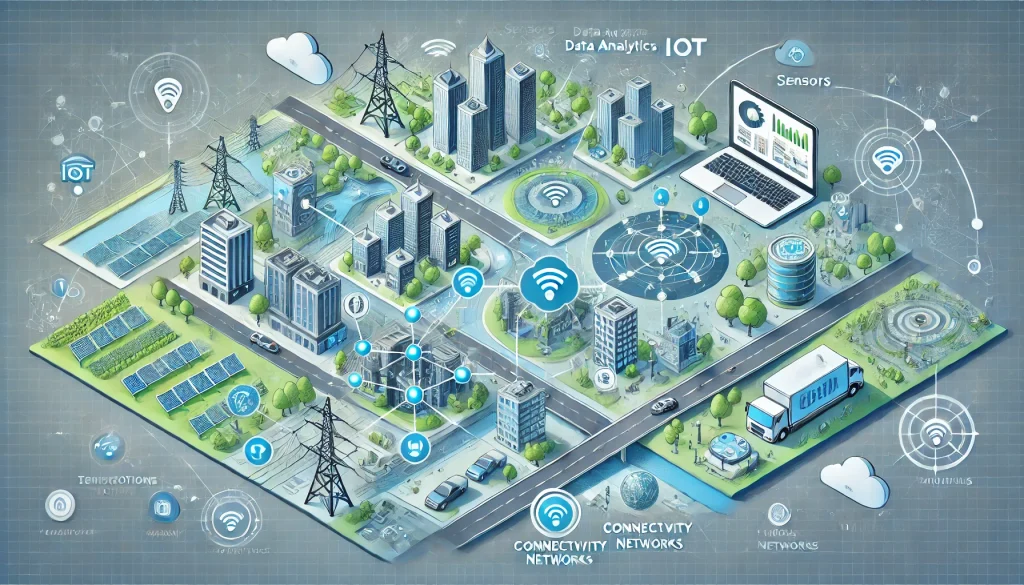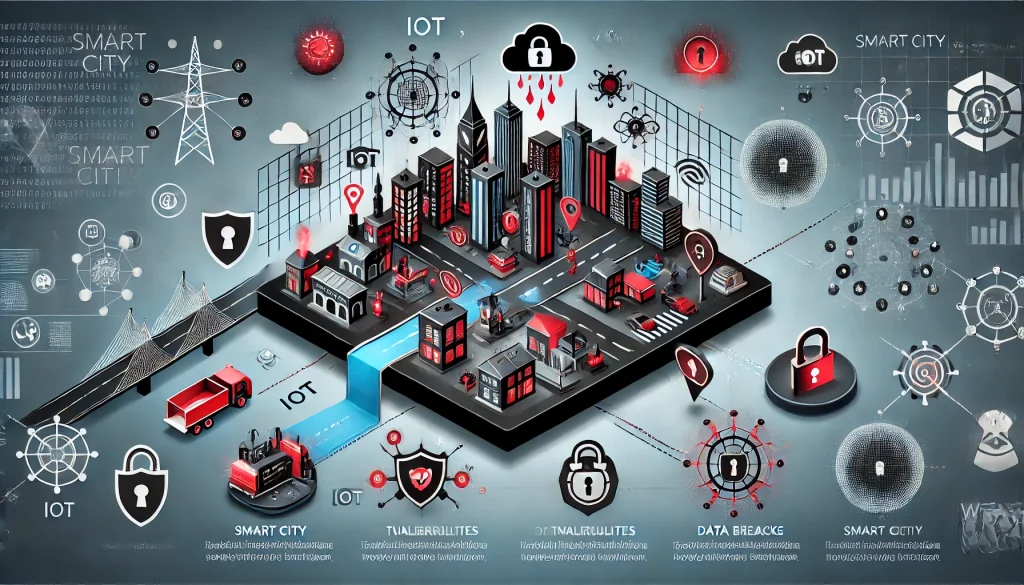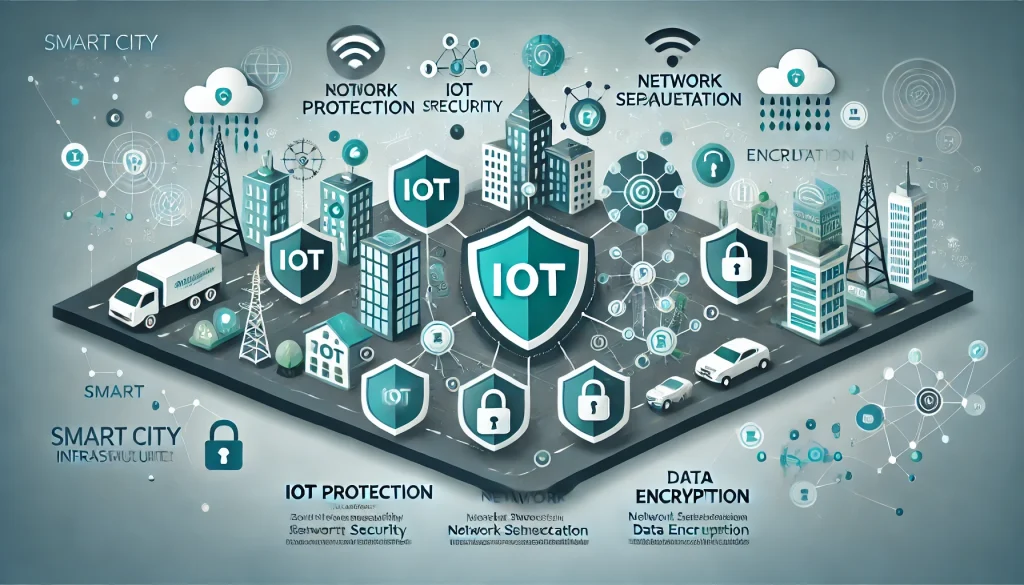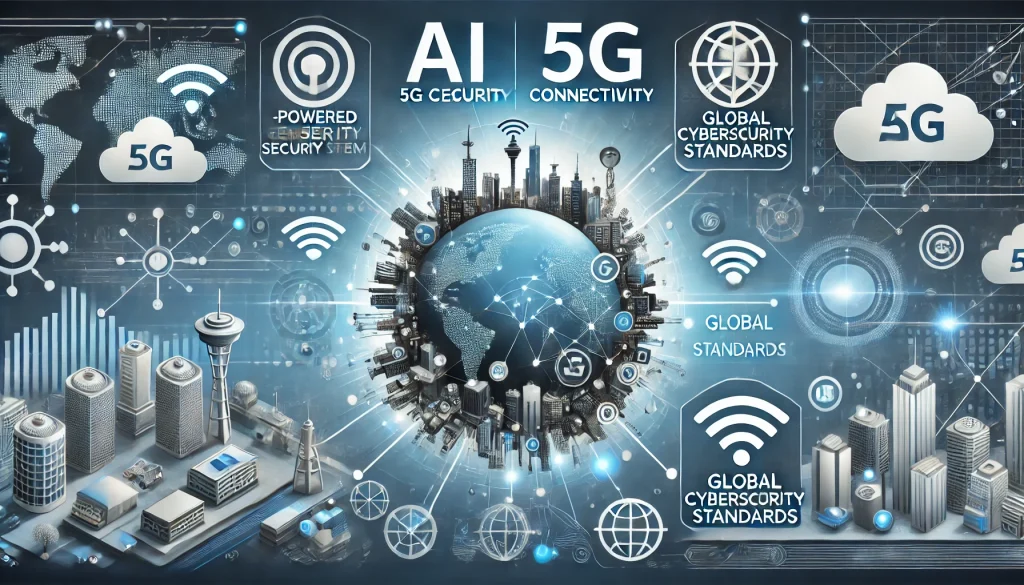Smart cities rely on interconnected Internet of Things (IoT) devices to manage and optimize urban infrastructure, from traffic control and utilities to public safety, hence there is a cybersecurity for smart cities. These innovations promise more efficient, livable cities, but they also introduce significant cybersecurity risks. Inadequate security measures can lead to disruptions in essential services, privacy breaches, and even threats to public safety. As cities around the world become increasingly digitized, safeguarding smart city infrastructure is more critical than ever. This article explores the key cybersecurity challenges smart cities face, the potential consequences of cyberattacks, and effective strategies to protect these complex systems.
Understanding Smart Cities and Their Infrastructure

A smart city integrates advanced technologies to enhance the efficiency and quality of urban services. It uses IoT devices, data analytics, and connectivity networks to manage and optimize various city functions. The core components of smart cities include:
- IoT Sensors: Monitor environmental factors, infrastructure status, and public utilities.
- Data Analytics: Analyze real-time data to improve decision-making and optimize city services.
- Connectivity Networks: Enable seamless communication between devices and systems, ensuring efficient data flow.
Together, these components create an interconnected urban ecosystem designed to improve the quality of life for residents, streamline city operations, and foster sustainable development.
Key Challenges in Cybersecurity for Smart Cities

IoT Device Vulnerabilities
IoT devices form the backbone of smart city infrastructure but often lack robust security features. Many devices operate with outdated firmware, weak passwords, or no encryption, making them prime targets for cyber attackers. A compromised IoT device can serve as a gateway for larger attacks on the network, disrupting critical services like traffic lights, water supply, and emergency response systems.
Data Privacy and Security
Smart cities collect vast amounts of data from various sources, including traffic patterns, energy usage, and citizen behavior. Securing this data is a major challenge, as any breach could lead to significant privacy violations and misuse of sensitive information. Implementing robust data protection measures is essential to prevent unauthorized access and ensure compliance with privacy regulations.
Network Security
The extensive connectivity between smart city devices and systems introduces several network security risks. Unsecured network communications can be intercepted, allowing attackers to manipulate data, disrupt services, or gain unauthorized access to critical systems. Ensuring secure, encrypted communication channels and implementing network segmentation can help mitigate these risks.
Potential Risks and Impact of Cyber Attacks on Smart Cities
Cyber attacks on smart city infrastructure can have severe and far-reaching consequences. The most critical risks include:
- Service Disruptions: Cyber attacks can disable essential services like water supply, public transportation, and traffic management, causing widespread chaos and inconvenience.
- Public Safety Risks: Compromising security systems or emergency response networks can endanger lives, undermining the city’s ability to protect its residents.
- Financial Losses: The costs associated with service restoration, data breaches, and system repairs can be substantial, straining city budgets and resources.
- Loss of Public Trust: Repeated cyber incidents can erode citizen confidence in smart city initiatives, hampering future development and adoption.
These risks highlight the urgent need for comprehensive cybersecurity strategies to protect smart cities from potential threats.
Strategies for Securing Smart Cities

Robust IoT Security
- Device Authentication and Secure Protocols: Implement strict authentication measures and use secure communication protocols to prevent unauthorized access to IoT devices.
- Firmware Updates and Vulnerability Management: Regularly update device firmware and actively manage vulnerabilities to reduce the risk of exploitation.
Network Security Enhancements
- Secure Communication Channels: Utilize encryption to protect data in transit and implement secure channels for device communication.
- Network Segmentation: Separate critical systems into isolated segments to limit the spread of potential attacks.
- Intrusion Detection and Prevention: Deploy systems that can detect and respond to suspicious activities, protecting the network from unauthorized access.
Data Protection Measures
- Data Encryption: Encrypt data both at rest and in transit to safeguard it from unauthorized access and breaches.
- Compliance with Regulations: Ensure adherence to data protection regulations such as GDPR to maintain the privacy and security of collected data.
Collaborative Security Frameworks
- Cross-Sector Collaboration: Foster collaboration between city authorities, private companies, and cybersecurity experts to share knowledge and resources.
- Incident Response Plans: Develop and regularly update incident response plans to quickly address and mitigate cyber threats.
These strategies, when implemented effectively, can significantly enhance the security posture of smart cities, protecting them from evolving cyber threats.
Future Trends in Cybersecurity for Smart Cities

- AI and Machine Learning Integration: AI and machine learning can enhance predictive security by identifying threats before they occur, enabling proactive defense measures.
- 5G and Enhanced Connectivity: The rollout of 5G will improve connectivity but also introduce new security challenges. Protecting the expanded network infrastructure will be crucial.
- Global Standardization and Regulation: Developing global standards and regulatory frameworks will help cities worldwide implement consistent and effective cybersecurity practices.
Staying ahead of these trends will be essential for building resilient, secure smart cities that can withstand future cyber threats.
Conclusion
Securing the future of smart cities requires a proactive and comprehensive approach to cybersecurity. As urban areas become increasingly digitized, the risks associated with cyber threats grow, making robust security measures essential. From protecting IoT devices and networks to safeguarding data and fostering collaboration, cities must prioritize cybersecurity to ensure the safety, efficiency, and resilience of their infrastructure. By investing in the right technologies and strategies, city planners and policymakers can build a secure foundation for the smart cities of tomorrow.
FAQ
Why is cybersecurity important for smart cities?
Cybersecurity protects critical infrastructure, data, and services in smart cities from cyberattacks, ensuring safety and reliability.
What are the biggest cybersecurity threats to smart cities?
IoT device vulnerabilities, data breaches, and unsecured networks pose the greatest threats to smart city infrastructure.
How can smart cities improve their cybersecurity?
Implement strong IoT security, secure networks, encrypt data, and develop collaborative security frameworks to enhance protection.
Resources
- MDPI. Cybersecurity for Smart Cities: Challenges and Solutions
- CISA. Cybersecurity Best Practices for Smart Cities
- World Economic Forum. This is How We Secure Smart Cities
- ResearchGate. Securing the Smart City: A Review of Cybersecurity Challenges and Strategies
- Deloitte. Making Smart Cities Cyber Secure
